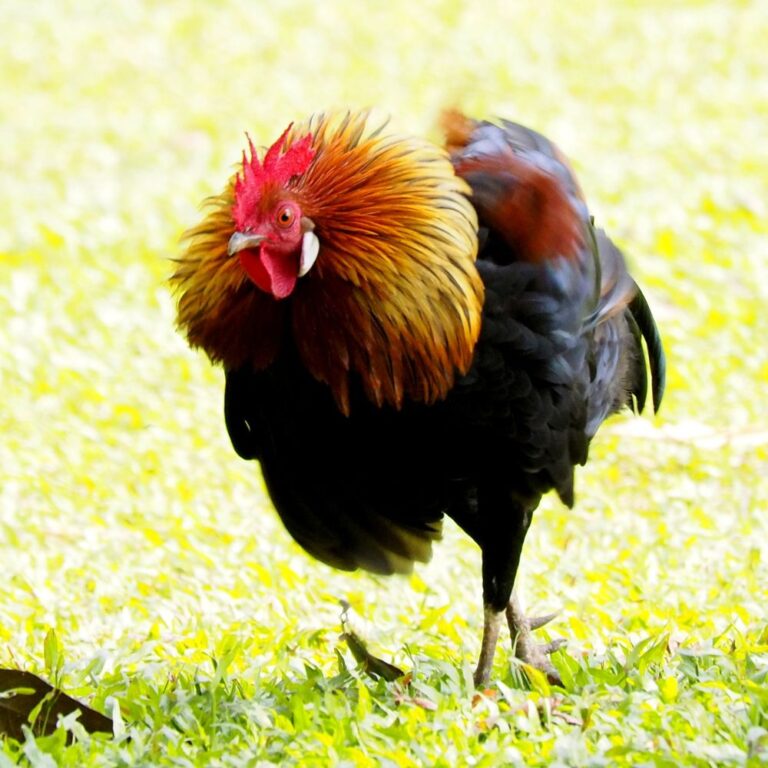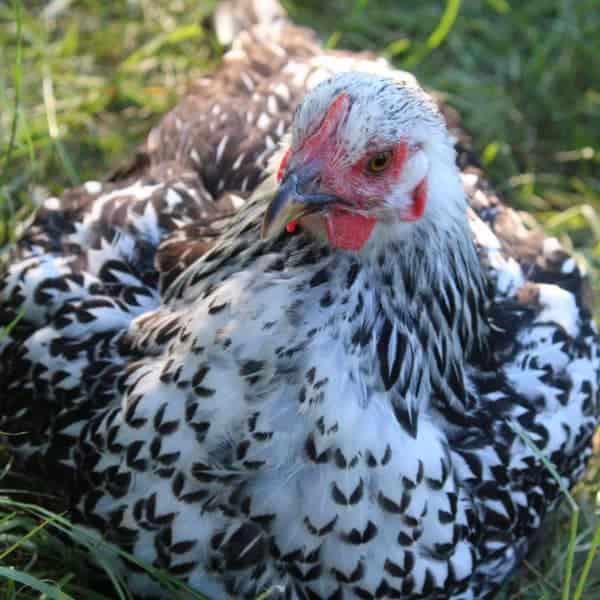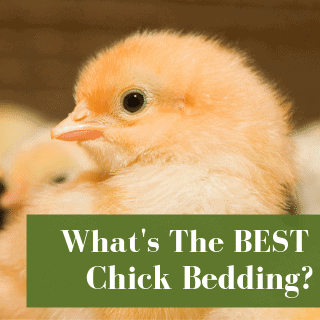Table of Contents (Quickly Jump To Information)
Keeping chickens cool in hot weather can mean the difference between life and death.
Really.
Last summer, we dealt with some cases of heat stress, egg production suffered, and we even lost one friendly Cornish Cross rooster (you’ll hear all about that story in this week’s podcast!)
I have a lot to share on this subject, and in this podcast, you’ll get the inside scoop.
In most cases, heat stress is easily avoided, and there’s several steps you can take to prepare your flock for hot weather.
There are also some breeds that you shouldn’t bother raising in hot weather, and obviously, there are some breeds that are more heat-tolerant than others.
If you want to keep your flock healthy during the long days of summer, then you’ll love the pro tips in this podcast.
You’ll learn:
- Emergency first aid for heat stress
- How to provide cool water even when you’re gone all day
- How to make homemade electrolytes using ingredients you already have
- Heat-tolerant breeds (and which to avoid raising in the heat of summer)
Links we discuss:
Where to get a free coupon book for Manna Pro Poultry feed ($32 value!)
How to make an automatic waterer
Commercial electrolytes to keep handy
Transcript
Hi there, and welcome to session 32 of What the Cluck?!, a podcast devoted to keeping chickens for fun and self-sufficiency. I’m Maat from FrugalChicken, and in this episode we’ll talk about how to keep your chicken flock cool in hot weather.
It’s spring now, although I know some of you are still in the dregs of winter, but in my area, it’s about 80 degrees every day, so I thought an episode about keeping chickens cool would be a good way to prepare everyone so you can avoid problems in June, July, and August.
So, by the end of this episode, you’ll know how to keep your chickens cool in hot weather, signs of heat stroke, how to help a chicken experiencing heat stress, how to make homemade electrolytes, and breeds that are well suited for hot weather.
Just as a reminder, you can get this episodes show notes at TheFrugalChicken.com/Podcast33, that’s podcast with the numbers 3 and 2.
So stay with me!
Now, this podcast is sponsored by Manna Pro Poultry, and I’m happy to partner with them to bring you this podcast because I love their feed.
Particularly in summer, when your chicken’s ability to handle hot weather is effected by their diet, I particularly love how healthy Manna Pro’s organic feeds are.
They have a full array of organic, non-GMO feed for every stage of your chicken’s life, which is huge, and new this year is their Organic Grower Crumbles. This is a brand I trust, and that’s why I’m happy to tell you about them.
You might notice that in every episode I discuss how important diet is, and that’s because it dictates not just how healthy your hens are, but how healthy their eggs are for you.
Now, if you buy chicks at the feed store this spring, and you’re not sure which feed to buy for them, go with Manna Pro’s non-GMO, organic crumbles, and you can be sure you’re headed in the right direction to raising a happy, healthy flock.
Now, if you go to the Manna Pro Poultry Facebook page, and I’ll put a link to that page in the show notes, you can register to get a Chick Days Coupon Book, which they will send to you.
There’s $32 in coupons in the book, and you will also find coupons for their organic crumbles, as well as their other products, such as hen treats and their mealworms, which I especially love.
You can visit Manna Pro to find out more about their line of organic, non-GMO feeds at MannaPro.com.
Now, let’s talk about how to keep your chickens cool during hot weather.
How To Keep Chickens Cool In Hot Weather
I’ve had more problems with chickens experiencing heat stress than problems with cold weather, and hot weather really is a bigger problem for chickens than cold weather.
In addition to heat stress, in hot weather, chickens can experience reduced appetite and reduced egg laying, and these are some sure signs that your flock is more likely to experience something traumatic like heat stroke.
First, let’s talk about how chickens process heat and how they stay cool from a biological standpoint.
How Chickens Sweat
First, chickens have a natural body temperature of 107° (F). Chickens don’t sweat, but like people, they require evaporation to stay cool, which they do by panting.
So, as chickens pant, moisture within the chickens’ lungs evaporates, leaving their body.
Because they don’t have sweat glands, this cooling through breath is why it’s harder for them to stay cool when it’s humid – humid air is harder to breathe, at least it is where I live where there are days in August when I really do have a hard time breathing because of how thick the air gets around here.
So, how do you tell if your chickens are getting too hot? Watch their behavior.
Are they panting? Are they hanging their wings away from their bodies?
If they’ve become listless or their breathing has become labored, you need to help them because they’re experiencing heat stress.
Signs of heat stress
- Panting, with beak open – this is the point where you should take action
- Laying around with wings outstretched
- No interest in eating
- Slow to respond to stimuli
- Unresponsive
- Poor egg laying, no eggs
How To Help A Chicken With Heat Stress
To help a chicken that’s overheated, first determine if it’s mildly effected or if it’s an emergency situation.
While any signs of heat stress should be immediately addressed, if it’s an extreme case, start with placing them in a cool bath, or hosing them off.
If you do use a cool bath, hold your chicken or stand by close if they can support themselves to make sure they don’t fall over and accidently drown. If your chicken can’t hold themselves up, then you’ll have to do it for them.
Next, offer cool water with electrolytes, and if possible, bring the bird into air conditioning or at least a cool part of your house.
Homemade Electrolyte Recipe (From Fresh Eggs Daily)
1 cup water
2 tsp sugar
1/8 tsp salt
1/8 tsp baking soda
To feed it to your chickens, mix 1 cup of the homemade electrolytes to 1 gallon of water. I’ve used these homemade electrolytes before, and I love this recipe.
You can also buy commercial electrolytes, and you can find a brand I recommend at TheFrugalChicken.com/electrolytes.
If your chicken is just panting, and seems mildly stressed by the heat, first move her into the shade and keep her quiet. Offer her cool water with electrolytes in it, and hose off her feet to help her cool down.
So, let’s talk about some ways you can help your hens stay cool this summer.
Make sure your coop is well-ventilated
If your chickens need to stay in a coop all day, your first step should be to make sure the coop is well-ventilated with either windows or a gap between the walls and the roof.
One of our coops has a nice overhang, so we’re able to leave a 4-inch gap at the top, which automatically translates into good airflow.
If your coop doesn’t have windows or a way to provide decent ventilation in hot weather, then try using a fan to make a breeze. This is also important because stagnant air equals ammonia everywhere, while ventilation will help get the ammonia out of your coop.
If possible, build your coop in a shady area of your property, since obviously, shade makes a big difference in temperature.
The next thing you can do to keep chickens cool in hot weather is to offer water, and we’ll talk about creative ways to do that.
One idea is to put waterers in the shade to entice your flock to lay in a cooler area, as we as keeping the water cool.
As they go along hunting and doing whatever they do outside, chickens tend to get distracted and not want to take a break in the shade; keeping it in the shade will prevent that.
Now, one thing to remember is that when it comes to nipple waterers, if you use those, remember that your hens might not be able to use them if they’re panting. In this case, opt to use a bowl instead so they can drink. When they’re less hot, they will go back to using the nipple waterers.
One way to ensure you’ll provide cool water in hot weather when you’re not home is to the night before, put a waterer in your freezer, or freeze a gallon of water, and put it out for them in the morning.
Obviously if you use a gallon of water, you’ll have to either freeze it less or wait for it to thaw before pouring it out, but the point is as the ice melts, they’ll have cool water to drink and it will stay cooler for a longer period.
Now, another option is to overfill their water buckets in the summer, which causes the dirt around the buckets to become cooler, so they end up with a cool place to stand. You can also keep a shallow tub filled for them to stand in.
You can also try misters, which you can buy cheaply enough, and I’ll put a link in the show notes where you can buy them, but you can also go to TheFrugalChicken.com/Misters for a good brand to try.
Misters will lower the temperature by about 10 degrees in the area they’re misting, which, if it’s a 100 degree day, can mean the difference between heat stroke and just hot hens. So, they’re a good option.
How To Set Up Misters For Your Coop
You can set the misters up 3 feet off the ground and mount them to a ½-inc PVC pipe about 3 feet apart.
Cap one end of the pvc pipe off, and put a threaded fitting onto the other end where you can hook up a hose. Turn the hose on, and the misters will do their job. Simple to set up, and pretty effective for keeping your flock cool.
If a DIY mister isn’t your thing, you can still water down the chicken run and your chicken coop to at least provide some comfort to your birds.
Summer is also a time when having dirt bath areas is critical, because as they dust bathe, especially if they do it in the ground, then as they dig deeper, cool dirt will be exposed.
Dogs and pigs do something similar – as they dig, they stay cool because dirt is cooler below the surface.
Another option is to provide them with a grassy area to stand. Grass is always cooler than dirt or asphalt, and it’s a way to help them stay cool on hot days.
Lastly, one of the most popular way to keep chickens cool in warm weather is to give them cold or frozen fruits and vegetables.
Watermelon is a good option, and chickens love pecking through a split watermelon, and it’s also a good way to keep them hydrated.
Another option is to freeze corn or other goodies like mealworms in water overnight, then let them peck through it to get the treats. At the same time, they’ll get cool water into their systems.
Frozen peas are another good idea. Really, the possibilities are endless. Just make sure its something safe for them to eat.
Just make sure you’re being observant. They might get enough shade in the morning, but at noon, the sun will have moved, and they might not have the same access to shade as they did in the morning.
This can particularly be an issue with chickens that are cooped all day.
Good chickens breeds for hot weather
If you’re someone who lives in an area that’s hot all year round, you might want to consider some heat-tolerant breeds, which we’ll talk about right now.
I’ve noticed that my Blue Copper Marans, which are of French origin, are not as heat tolerant as my Production Reds. While they haven’t suffered heat stroke, in very hot weather, like over 100 degrees, which its often that hot here in the summer, the quality of their egg shells suffers.
So, with them, I take particular care to make sure they’re ok in hot weather, and they’re maybe not a good bet for someone living in a hot climate year round.
When looking for a good breed that’s heat tolerant, look for chickens with small bodies and big combs, as well as lighter colored breeds, like leghorns. Dark breeds, such as black copper marans, will have a harder time because of their dark feathers.
Good options are Mediterranean breeds, such as Leghorns and Minorcas.
Other breeds to consider are white faced black Spanish chickens, Sicilian Buttercup, Black Sumatra, and Egyptian Fayoumi, although this list is certainly not all-inclusive.
So, that’s this week’s podcast, and I hope you have a good idea of how to keep chickens cool in hot weather.
Now, if you’re new to chickens or maybe you’re an old hand, and want to do something fun, I have a 15 day boot camp coming up called the Healthy Coop Boot Camp.
You can sign up at HealthyCoopBootCamp.com and each day you’ll get an email with a video chock full of information you need to know to raise happy, healthy chickens.
If you’re not sure what to do with chicks when you get them home, or when to switch feeds, or if you’re interested in raising chickens naturally with things like herbs, then my bootcamp is for you.
My Healthy Coop Bootcamp is completely free.
Thanks for listening to this episode of What The Cluck?!, and I’ll see you next time!
I’d like to hear from you!
Do you think you’ll try any of these ideas to keep chickens cool in hot weather? Leave a comment below!
Maat van Uitert is a backyard chicken and sustainable living expert. She is also the author of Chickens: Naturally Raising A Sustainable Flock, which was a best seller in it’s Amazon category. Maat has been featured on NBC, CBS, AOL Finance, Community Chickens, the Huffington Post, Chickens magazine, Backyard Poultry, and Countryside Magazine. She lives on her farm in Southeast Missouri with her husband, two children, and about a million chickens and ducks. You can follow Maat on Facebook here and Instagram here.


![Gifts & Winter Boredom Busters For Your Backyard Chickens [Podcast]](https://thefrugalchicken.com/wp-content/uploads/2016/12/chicken-gifts.jpg)




Great article. I have lost plenty of chickens this sumer and we are in end of October and still loosing plenty more. I am from the Caribbean and the weather is ridiculous this year. I have never experiencea lost such as this. Now I havesome better insights on what to do. I know the heat was a problem but it surprised me that i didnt think of cooling their feeds. I just give them aloe water. Thanks greatly for this I am starting this immediately. You have a dedicated follower.
Thank you for the information. I have lost a few chickens and didn’t know why now I will start doing some of your suggestions